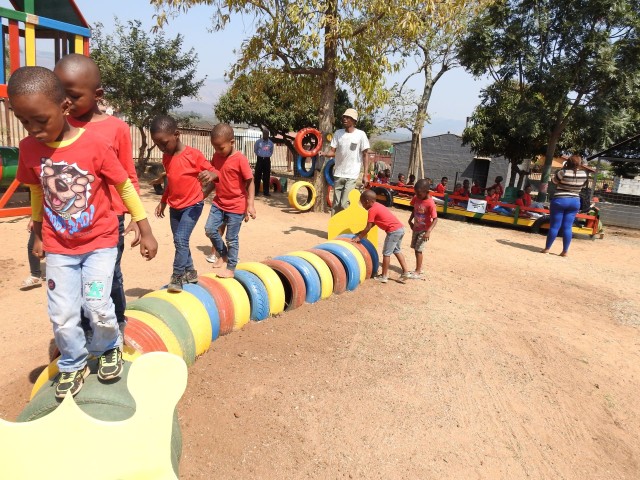Early Education in South Africa
South Africa has a population of 59 million inhabitants and an area of 1.2 million km2. Although it is known as the continent’s “economic giants” and has a GDP that is estimated at just over US$ 711 billion (2019), South Africa remains undermined by endemic poverty and deep social disparities. Still about a quarter of the population lives below the poverty line. South Africa was ranked 114st out of 189 countries in 2019 according to the Human Development Index (HDI).
With regard to early childhood education, South Africa lags behind development. It spends much less on each child attending a registered preschool or ECD services than it spends on formal schooling. Despite the facts that South Africa has introduced an additional preschool-grade (Grade R) in 2001, which is rather early compared to other countries, and that around 90% of primary schools offer a Grade R class, the preschool level is still not compulsory to date and quality remains poor. An impact evaluation of the Department of Performance Monitoring and Evaluation has shown that there is virtually no measurable impact for the poorest three school quantiles, while there are some impacts for the higher quantile schools. Thus, instead of reducing inequalities, Grade R further extends the advantage of more affluent schools. Existing literature shows that quality in many ECD and Grade R centres remains poor and that practitioners and teachers have limited understanding of their role in child development.
In terms of quality teaching, there is still no monitoring system in place, which collects school readiness or other child development data. There is not even a national standardised assessment on Grade R level to determine whether children are ready for school. Furthermore, there are no formalised structures, processes or policies to facilitate children’s transition to Grade R or Grade 1. The guidelines for the promotion of learners in Grade R and the Foundation Phase are such that a learner who does not meet the requirements for promotion can be progressed to the next grade. Although repetition rates of Grade R and Grade 1 are underreported, the little data available shows exceptionally high level.
In order to break the cycle of poverty, it would be particularly important for children coming from financially disadvantaged families to have access to early learning. Data, however, shows that almost 50% of children aged between 0-6 are not accessing any ECD service before school. The lower the income the lower the enrolment rate in early learning services.


